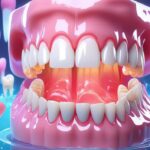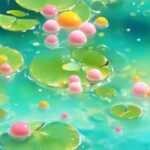Water is an essential resource that we rely on for various daily activities. However, not all water is created equal, and one common issue that many households face is hard water. In this article, we will explore the five major drawbacks of hard water and provide practical solutions to mitigate its effects. From the detection of hard water to understanding how it becomes hard and the disadvantages it poses, we will delve into the root causes of water hardness and provide actionable steps to address this problem. Join us as we uncover the impact of hard water and learn how to overcome its challenges in our everyday lives.
Key Takeaways:
- Hard water can have a metallic taste and sulfurous smell due to the presence of minerals like calcium, magnesium, and iron.
- Producing a foamy lather with soap is difficult when using hard water.
- Washing dishes with hard water may result in a less clean and spot-free outcome.
- Limescale buildup caused by hard water can lead to blockages in appliances and pipes, reducing energy efficiency.
- Hard water can contribute to dryness and irritation of the skin and scalp.
- The minerals in hard water can cause scale buildup in plumbing systems, leading to reduced water flow and potential costly repairs.
- Appliances exposed to hard water, such as water heaters and washing machines, may have a shorter lifespan due to limescale buildup.
5 Disadvantages of Hard Water

Hard water, with its high mineral content, can bring about a range of disadvantages that can affect our daily lives. From issues with taste and smell to damage to our plumbing systems and appliances, it’s important to understand the drawbacks of hard water. Let’s explore the five main disadvantages and discover practical solutions to mitigate their effects.
1. Taste and Smell
Hard water often contains minerals like calcium, magnesium, and iron, which can create an unpleasant metallic taste and give off a sulfurous smell. These characteristics can significantly impact the quality of drinking water and make it less appealing to consume. Nobody wants to drink water that smells like rotten eggs or tastes like metal, do they?
2. Lather
One of the frustrating aspects of using hard water is the difficulty in producing a good lather. When we try to wash our hands or clean our bodies with soap, the minerals in hard water form insoluble compounds that interfere with soap’s ability to create a foamy lather. This can lead to a less effective cleaning experience overall. Who wants to struggle with getting clean when taking a shower?
3. Dishwashing Ability
Cleaning our dishes can become quite a chore when dealing with hard water. The minerals present in hard water can leave behind spots and streaks on our glassware, cutlery, and dishes, making it challenging to achieve a clean and spot-free result. This can be frustrating, especially when we put effort into ensuring our dishes are sparkling clean. Nobody wants to serve food on dull and spotty plates, right?
4. Limescale Buildup
One of the most notable drawbacks of hard water is the formation of limescale when it is heated. Limescale is a chalky white deposit that accumulates in appliances and pipes over time. This buildup can lead to blockages, reduced water flow, and decreased energy efficiency. Our appliances and plumbing systems may suffer from reduced performance and require costly repairs. Who wants to deal with clogged pipes or constantly replace appliances?
5. Dry Skin and Hair
Hard water can take a toll on our skin and hair. The minerals in hard water can strip away natural oils from our skin and scalp, leading to dryness, irritation, and even eczema. Hair can become dull, brittle, and difficult to manage. Battling dry skin and lackluster hair becomes a frustrating daily struggle. Who wants to deal with itching skin and lifeless hair that refuses to cooperate?
In order to mitigate the effects of hard water, there are practical solutions available. Water softeners can help remove the minerals responsible for the disadvantages mentioned above, providing us with cleaner and more enjoyable water. Installing a water softener can eliminate limescale buildup, enhance the effectiveness of soaps and detergents, and improve the overall quality of our daily routines.
Remember, understanding the disadvantages of hard water and taking steps to address them can greatly improve our quality of life. No more unpleasant tastes and smells, no more struggling to produce a good lather, no more dealing with spotty dishes, no more costly plumbing repairs, and no more dry skin and hair. It’s time to say goodbye to the drawbacks of hard water and embrace a more enjoyable and hassle-free water experience.
Here are two captivating sentences that encourage the reader to click on the links:
Did you know that sea transport has its drawbacks? Check out our article on the 5 disadvantages of sea transport to unravel the challenges faced in this mode of transportation.
Discover the downsides of soft water by exploring our comprehensive guide on the 5 disadvantages of soft water. Uncover how this commonly preferred type of water may not be as advantageous as you think.
Markdown Format:
1. 5 disadvantages of sea transport – Did you know that sea transport has its drawbacks? Check out our article on the 5 disadvantages of sea transport to unravel the challenges faced in this mode of transportation.
- 5 disadvantages of soft water – Discover the downsides of soft water by exploring our comprehensive guide on the 5 disadvantages of soft water. Uncover how this commonly preferred type of water may not be as advantageous as you think.
Disadvantages of Hardwater

Hard water may seem harmless, but its effects can cause significant problems. From limescale buildup to damage in appliances, the disadvantages of hard water can be inconvenient and costly. In this article, we will explore the five main drawbacks related to hard water and offer practical solutions to mitigate its effects.
1. Formation of Limescale: Clogging and Reduced Energy Efficiency
When hard water is heated, it undergoes a chemical reaction that leads to the formation of limescale. This mineral deposit can accumulate in appliances and pipes over time, causing blockages and reducing energy efficiency. Imagine your morning routine interrupted by a showerhead clogged with limescale or a washing machine struggling to perform at its best. Hard water can be a silent enemy, slowly degrading the efficiency of your appliances.
2. Difficulty in Lathering: Wasted Soap and Inefficient Cleaning
Have you ever noticed how hard it is to get a good lather with hard water? The minerals present in hard water interfere with the foaming action of soap, making it harder to clean effectively. This not only leads to wasted soap but also inefficient cleaning. Those extra pumps of soap you’re using to compensate for the lack of lather could be draining your wallet and harming the environment.
3. Dry Skin and Hair: The Mineral Culprits
The mineral content in hard water can have a noticeable effect on your skin and hair. The high concentration of minerals like calcium and magnesium can leave a residue on your skin, making it feel dry and itchy. Similarly, hard water can strip away your hair’s natural oils, leaving it feeling dull and straw-like. The effects of hard water on your personal hygiene can often go unnoticed until they become a persistent annoyance.
4. Furring of Tea Kettles: No More Perfect Cup of Tea
If you’re a tea lover, then hard water can be a real downer. The calcium and magnesium carbonates in hard water can cause a build-up inside your tea kettle, resulting in unsightly furring. Not only does this affect the appearance of your kettle, but it can also impact the taste of your tea. Say goodbye to that perfect cup of tea you were looking forward to; instead, you might find yourself with an undesirable residue floating around.
5. Staining of White Fabrics: From White to Grey
Using hard water to launder your clothes can lead to some disappointing results. The minerals in hard water can react with the detergents and cause staining on white fabrics. After a few washes, your bright white shirts and linens may start looking dull and grey. Hard water can rob your clothes of their original vibrancy, leaving you feeling frustrated and dissatisfied.
These five drawbacks of hard water may seem daunting, but there are practical solutions to mitigate their effects and ensure a better water experience. From installing water softeners to using descalers, numerous options can combat the disadvantages of hard water and improve your daily life.
Key Takeaways:
– Hard water can lead to the formation of limescale, causing blockages and reduced energy efficiency in appliances.
– The difficulty in lathering with soap due to hard water can result in wasted soap and inefficient cleaning.
– The mineral content in hard water can cause dry skin and hair, leading to discomfort and frustration.
– Furring of tea kettles due to hard water can affect the taste and appearance of your tea.
– Hard water can stain white fabrics and make them appear dull and grey.
Sources:
– BYJU’S: Disadvantages of Hard Water
– Unacademy: Disadvantages of Hardness
What causes the hardness of water?
Hard water is a common issue in many households, but have you ever wondered what causes it? In this article, we will explore the factors that contribute to the hardness of water and the drawbacks associated with it. Understanding the causes of hard water is crucial in finding practical solutions to mitigate its effects on our daily lives.
The Chemistry Behind Hard Water
The hardness of water is primarily determined by the presence of certain minerals, mainly calcium and magnesium. These minerals can dissolve in water when it comes into contact with rocks like limestone, which contain calcium compounds. The dissolved calcium and magnesium ions then contribute to the hardness of the water.
There are two types of hardness in water: temporary and permanent. Temporary hardness is caused by calcium bicarbonate, while permanent hardness is caused by mineral salts other than calcium bicarbonate. The ratio of calcium and magnesium in water is also a crucial factor in determining its hardness.
The Drawbacks of Hard Water
Hard water may not pose serious health risks when consumed, but it can have several drawbacks that affect our daily lives. Let’s explore the five main disadvantages of hard water and practical solutions to mitigate their effects:
1. Scale Buildup and Reduced Efficiency
When hard water is heated, limescale forms and can lead to the buildup of deposits in appliances and pipes. This can cause blockages and reduce energy efficiency. To address this issue, regular descaling or the use of water softeners can help prevent scale buildup and maintain the efficiency of your appliances.
2. Decreased Effectiveness of Soaps and Detergents
Hard water makes it challenging to produce a foamy lather when using soap, and it can also reduce the effectiveness of detergents. This means more soap or detergent is needed to achieve the desired cleaning results. Using water softeners or choosing soap and detergent specifically designed for hard water can help improve their effectiveness.
3. Dry Skin and Hair
The high mineral content in hard water can contribute to dryness and irritation of the skin and scalp. To alleviate this issue, using moisturizing lotions, shampoos, and conditioners can help restore moisture to the skin and hair. Additionally, installing a water softener or using a showerhead filter can remove the minerals that cause dryness.
4. Limescale Stains and Damage
Hard water can lead to limescale buildup on tea kettles, faucets, and other surfaces. This not only affects their appearance but can also impact their functionality over time. Regular cleaning using mild acidic solutions or descaling agents can help remove limescale stains and prevent further damage.
5. Impact on Plumbing Systems
The minerals in hard water can cause scale buildup in pipes and plumbing fixtures, leading to reduced water flow and potentially expensive repairs. Installing a water softener can help prevent this scale buildup and maintain the performance of your plumbing system.
Key Takeaways:
- Hard water is caused by the dissolved calcium and magnesium ions from rocks like limestone.
- There are two types of hardness in water: temporary and permanent.
- Hard water can lead to scale buildup, reduced effectiveness of soaps and detergents, dry skin and hair, limescale stains and damage, and plumbing problems.
- Practical solutions to mitigate the effects of hard water include descaling, using water softeners, choosing specific products for hard water, and maintaining regular cleaning and maintenance routines.
Sources:
– BBC Bitesize – Hard and soft water – GCSE Chemistry (Single Science)
– National Center for Biotechnology Information – Hardness in drinking waters and its impact on public health
(Please note that the content of this article is based on research and general knowledge in the field of environmental science. For specific concerns about the quality of your water, it is advisable to consult local water testing and treatment professionals.)
FAQ
Q1: How do you detect if water is hard or soft?
A1: It is difficult to visually determine if water is hard or soft. The hardness of water is primarily determined by the amount of calcium and magnesium it contains. Specialized tests can be conducted to measure the concentration of these minerals and determine the hardness level of the water.
Q2: How does water become hard?
A2: Water becomes hard when it contains high concentrations of minerals such as calcium and magnesium. These minerals are dissolved into the water when it comes into contact with rocks like limestone and other calcium compounds.
Q3: What are the disadvantages of hard water?
A3: Hard water has several disadvantages, including a metallic taste and sulfurous smell, difficulty in producing foamy lather with soap, challenges in achieving clean and spot-free dishes, limescale buildup in appliances and pipes, dryness and irritation of the skin and scalp, potential damage to plumbing systems, and reduced lifespan of appliances due to limescale buildup.
Q4: What causes the hardness of water?
A4: The hardness of water is primarily caused by the presence of dissolved calcium and magnesium ions. Temporary hardness is induced by calcium bicarbonate, while permanent hardness is linked with other mineral salts besides calcium bicarbonate.
Q5: What are practical solutions to mitigate the effects of hard water?
A5: There are several practical solutions to mitigate the effects of hard water. These include the use of water softeners or conditioners, installation of water treatment systems such as reverse osmosis or ion exchange, regular descaling and cleaning of appliances and pipes, using vinegar or citric acid to remove limescale deposits, and using moisturizers and conditioners for the skin and hair to alleviate dryness and irritation.
- China II Review: Delicious Food & Speedy Service - April 17, 2025
- Understand Virginia’s Flag: History & Debate - April 17, 2025
- Explore Long Island’s Map: Unique Regions & Insights - April 17, 2025
















